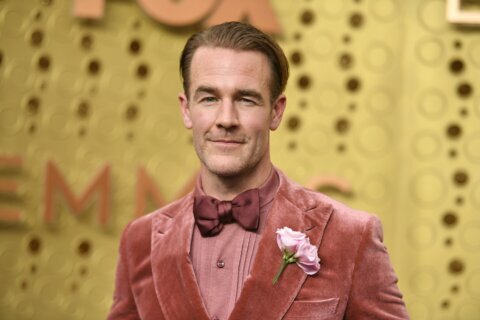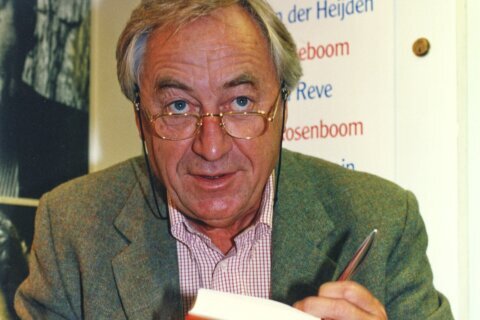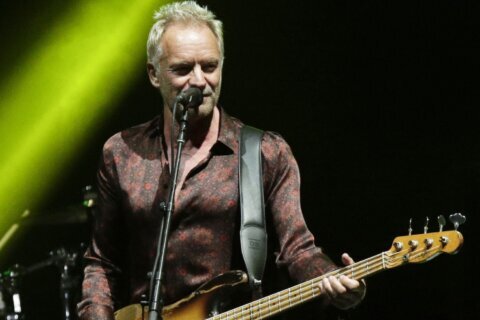Not many people can say they came up with the idea for an entire cable network, but that’s exactly what television veteran Art Bell did when he created Comedy Central.
This month, he chronicles his groundbreaking TV brainchild in the new book “Constant Comedy: How I Started Comedy Central and Lost My Sense of Humor.”
“There’s a couple of things that make this a good holiday gift,” Bell told WTOP. “One, it’s funny. … Two, it’s a great behind-the-scenes look at television … And three, there’s great stories that people told me they couldn’t believe what they were reading.”
Back in 1989, television was barely a decade into 24/7 networks devoted to news (CNN), sports (ESPN) and music (MTV), so when Bell began working in the finance department at HBO, he dreamed of one day inventing a 24/7 comedy network.
“One day I decided to pitch the head of programming at HBO; 30 seconds into the pitch, she said, ‘Stop. It’s the worst idea I’ve ever heard,'” Bell said. “What decent comedian is going on a 24-hour network? Robin Williams is not going, Whoopi [Goldberg] is not going, Billy Crystal is not going.’ … I thought she was wrong.”
He couldn’t get the idea of his brain, so he started privately drawing up a proposal.
“As luck would have it, my boss’ boss caught me working on it and said, ‘Come on, let’s go see the chairman,'” Bell said. “Michael Fuchs was one of the most powerful men in Hollywood. … There I am, no presentation materials, no preparation and I pitched it. Fifteen minutes later he said, ‘Hmm, sounds interesting. Let’s try it.'”
Originally called The Comedy Channel, the upstart network took a while to catch on.
“We couldn’t get an audience right away and Michael Fuchs, who had bet his reputation on it, was livid,” Bell said. “He called me in three or four months after we launched and said, ‘Art, it took a comedy channel to get me to lose my sense of humor.’ … I thought they were going to turn us off any day. It was hard.”
One of the early challenges was striking a balance between original content and existing material, sparking his new concept to have hosts wisecracking over pop-culture footage in “Short Attention Span Theater,” hosted by rising star Jon Stewart.
“I suggested we could show short clips from movies and television,” Bell said. “That was supposed to be three quarters of our programming at launch, but we hit a legal snag and couldn’t use any of it. Luckily, ‘Mystery Science Theater 3000’ had showed up in the mail. That was a great piece of programming, so that was a lucky break.”
He also ran reruns of NBC’s “Saturday Night Live” and CBC’s “Kids in the Hall.”
“Lorne Michaels had never let the reruns from ‘SNL’ be shown,” Bell said. “They were all in the basement of NBC. … We had to go to Lorne and convince him that it would be a good idea to have his stuff on Comedy Central. … It was a tough negotiation and we paid a lot of money for it, let’s just leave it at that, but it was worth it.”
Around the same time, Viacom launched a rival comedy network called Ha!
“The day after we made our announcement, MTV Networks announced they too were announcing a comedy network,” Bell said. “That started the Comedy Wars. … [Later] we merged. … I was kept on, the head of programming at Ha! was kept on, they put us in a room and said, ‘Figure out what this new comedy network is going to look like.'”
Thus, the name changed to Comedy Central for a new product in 1991. Two years later, it found a major hit with the Bill Maher talk show “Politically Incorrect.”
“We met at a diner and he said, ‘I want to do a talk show where people actually talk, not about their movie or book … I want to talk about real issues seriously but in a way that’s entertaining. … It’ll be called ‘Politically Incorrect’ because I want to go up to the line and I want to cross the line. I want to get in trouble once in a while.”
In 1995, Bell launched the animated series “Dr. Katz, Professional Therapist.”
“It was an award-winning show, an animated show that had Jonathan Katz playing a psychiatrist,” Bell said. “Every week would have a new comedian come on and basically be on the couch. So many comedians had material about their childhood.”
Shockingly, at the peak of success, Bell lost his job when his boss was fired in 1996.
“They brought an MTV guy in and he brought his own team, so they fired the existing team,” Bell said. “You can imagine my disappointment, having worked so hard to get the channel to that point, but that’s show business. I went on to put my career back together, I was the president of Court TV and worked at a bunch of other channels.”
From his couch at home, Bell proudly watched his creation thrive, namely “The Daily Show,” first hosted by Craig Kilborn, then Jon Stewart. The nightly news spoof program later launched the likes of Stephen Colbert, Steve Carell and Trevor Noah.
“In 1992, we did something that started us in that direction,” Bell said. “We decided to cover the presidential State of the Union address live [with] Al Franken. … We also covered the Democratic and Republican conventions, Jon Stewart was involved in that coverage. … I think that’s the straight line you can draw to ‘The Daily Show.'”
He also watched Jimmy Kimmel thrive on “Win Ben Stein’s Money” (1997) and “The Man Show” (1999), while Trey Parker and Matt Stone delivered “South Park” (1997).
“I was there when ‘South Park’ came in the door,” Bell said. “‘South Park’ showed up in the mail. They did a Christmas card as a demo. … We all knew it was going to be a hit. … The guys who were scared were the advertising guys. … It was so profoundly crazy, taking shots at everything, really pushing the envelope like never before.”
In the new millennium, a wider demographic tuned into “Chappelle’s Show” (2003).
“The brilliance of bringing Dave Chappelle in when they did and the way they did was that anybody who knew Dave and knew his act … knew he was a star,” Bell said. “We were at a point where we could get top-flight talent and pretty much say, ‘You can do what you want.’ … By that time, Comedy Central had a built-in audience.”
You can read all of these stories and more in the book.
“What people find interesting about the book is that, first of all, comedy is hard,” Bell said. “People are surprised that it was as rough and tumble as it was. … You’re just watching this thing happen, wondering if it’s going to work and wondering if I’m going to survive this onslaught of trying to get this channel up and running.”
Listen to our full conversation here.








